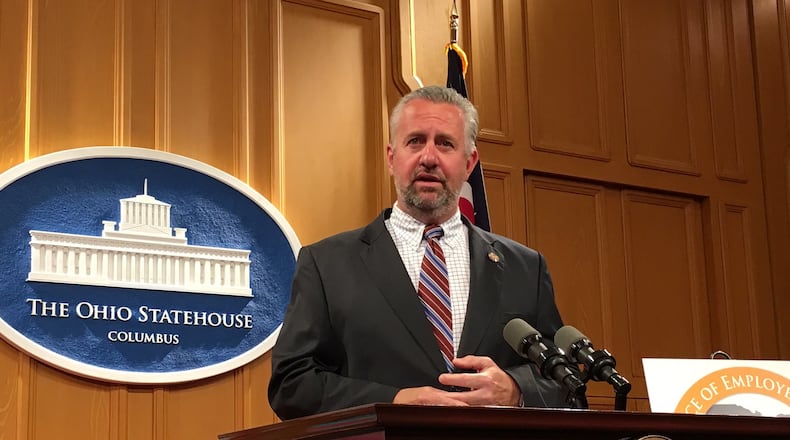The bill, which has 20 Republican co-sponsors, will be introduced in the Ohio House on Friday.
The BWC is the largest state-run workers’ compensation insurance fund in the country. It collects $1.4 billion in annual premiums from more than 244,000 employers and pays out roughly the same amount for lost wages and medical expenses incurred by injured workers. The system, founded in 1912, has $27 billion in assets.
Related: After scandals, state insurer on solid footing
Related: BWC on front line of opiate epidemic
Henne said the bill will do the following:
— Encourage employers to participate in BWC safety programs to prevent injuries;
— Address issues that led to health care providers to refuse to accept BWC patients;
— Mandate a return-to-work plan for every injured worker that includes steps such as rehabilitation, retraining or education;
— Eliminate benefits for lost wages when the injured worker reaches the age of retirement but provide phased-in replacement payments;
— Change death benefits to a $35,000 lump sum to the families, plus up to $20,000 in scholarship money for each dependant; and
Henne also wants to re-brand the BWC to the Office of Worker Safety and Rehabilitation.
BWC spokesman Anthony Gottschlich said Henne requested information from the bureau but did not work with BWC officials when writing the bill. The bureau does not yet have a position on the legislation.
Henne said in 46 other states, insurance agents sell workers’ comp policies but in Ohio the BWC is the “only game in town.”
“So it’s imperative they follow best practices for the good of every business in the state and for every one of their employees,” he said.
About the Author

